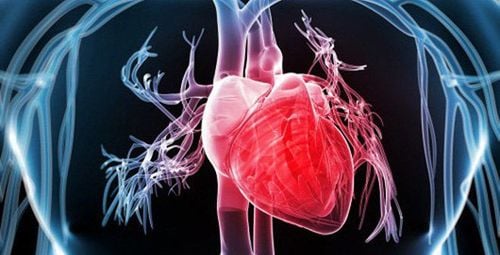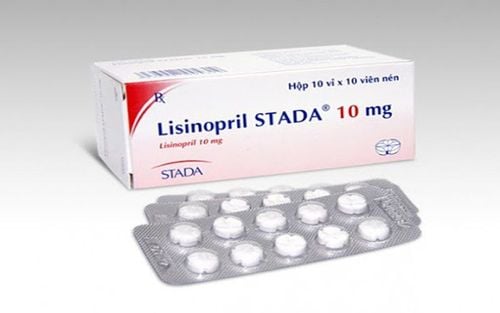This is an automatically translated article.
The article was professionally consulted with - Specialist II Le Thanh Cam - Pediatrician - Pediatrics - Neonatology - Vinmec Danang International General Hospital.Did you know that the number of deaths from cardiovascular disease in women is now higher than the number of deaths from cancer? It is worth mentioning that many women are not aware of the dangers of heart attacks and are still quite vague about the signs of heart disease in women.
1. Cardiovascular disease in women
Cardiovascular disease is the leading cause of death in women, higher than breast cancer. This is a general term for conditions affecting the heart and blood vessels. The most common cause of cardiovascular disease in women is the accumulation of plaque in the arteries. Plaque can harden and narrow the arteries, often called atherosclerosis. Unusual fatigue is a common heart disease sign in women.
2. Subjects at high risk of cardiovascular disease
Some risk factors for cardiovascular disease in women cannot be changed. However, the remaining factors can be overcome by lifestyle changes or treatment of related diseases. It is important to recognize the early signs of heart disease in women so that prompt treatment can be given. Specifically, the following people are often at high risk for the disease, need to be screened regularly:
Elderly : Women aged 55 to 64 years old, who have gone through menopause are at risk of developing the disease. higher. People with high blood pressure: Blood pressure can be understood as the pressure exerted by the heart every time it pumps blood through the blood vessels to the organs and tissues. Excessively high blood pressure (a condition called hypertension) can damage the walls of blood vessels, allowing plaque to form. High blood pressure is a major risk factor for cardiovascular disease in women and the most common risk factor for stroke. Therefore, women should check their blood pressure regularly to promptly treat as soon as the disease is detected. People with abnormal levels of Triglyceride and Cholesterol: Triglyceride is the most common form of fat in the body, which plays a role in providing energy for the activities of the organ system. Cholesterol is the building block of cells and hormones. To put it simply, there are two types of cholesterol in the body: good and bad. Good cholesterol (HDL, or High Density Lipoprotein) helps prevent cardiovascular disease in women by collecting cholesterol in the blood and sending it to the liver for destruction. Bad cholesterol (mainly LDL, or low-density lipoprotein) triggers the body's immune response, causing inflammation. Inflammation causes plaque buildup in the arteries and eventually atherosclerosis. Diabetics: High blood sugar levels that get out of control can lead to many health problems, including cardiovascular disease. Common causes of type 2 diabetes include: Being overweight, lack of exercise, abnormal cholesterol, and higher-than-normal blood sugar levels. People with unhealthy lifestyles: Having a habit of smoking, being lazy to exercise and being overweight.

3. What are the risk factors for cardiovascular disease in women?
The following problems in women increase the risk of cardiovascular disease:
Gestational hypertension : High blood pressure during pregnancy increases the risk of cardiovascular disease and high blood pressure later in life. Preeclampsia: This condition can occur during pregnancy or after childbirth. If not diagnosed and treated, preeclampsia can lead to serious health problems, increasing a woman's risk of cardiovascular disease. Gestational diabetes: Diabetes that first appears during a woman's pregnancy increases a woman's chances of developing diabetes and cardiovascular problems after pregnancy. Polycystic ovary syndrome (PCOS): A leading cause of infertility, affecting all parts of the body, not just the reproductive system. Women with PCOS have a higher risk of diabetes and cardiovascular disease. Certain autoimmune diseases: Diseases such as lupus or rheumatoid arthritis, which are common in women, have been linked to an increased likelihood of cardiovascular disease. Cardiovascular screening is recommended for people with these autoimmune diseases. Hormonal methods of birth control: These include birth control pills, patches, and vaginal rings that contain both estrogen and progestin. Women who use these methods of contraception have a slightly higher rate of stroke than those who do not. This rate would be significantly higher for women 35 years of age and older, with an additional risk factor, such as smoking, high blood pressure... Hormone therapy for menopause : Hormonal therapy Combined factors (estrogen and progestin) increase a woman's risk of developing signs of heart disease. Both combined hormone therapy and estrogen-only hormone therapy are associated with an increased risk of stroke.
4. Screening for cardiovascular disease in women
All women should be screened regularly for cardiovascular risk factors, including: blood sugar, cholesterol, blood pressure and weight. When and how often these tests are done depends on your age and risk factors.
If you are at risk for cardiovascular disease, lifestyle changes are usually the first recommended measure. If the condition does not improve, or you are at high risk, your doctor may prescribe medication to treat it.

Please dial HOTLINE for more information or register for an appointment HERE. Download MyVinmec app to make appointments faster and to manage your bookings easily.
Reference source: Acog.org













